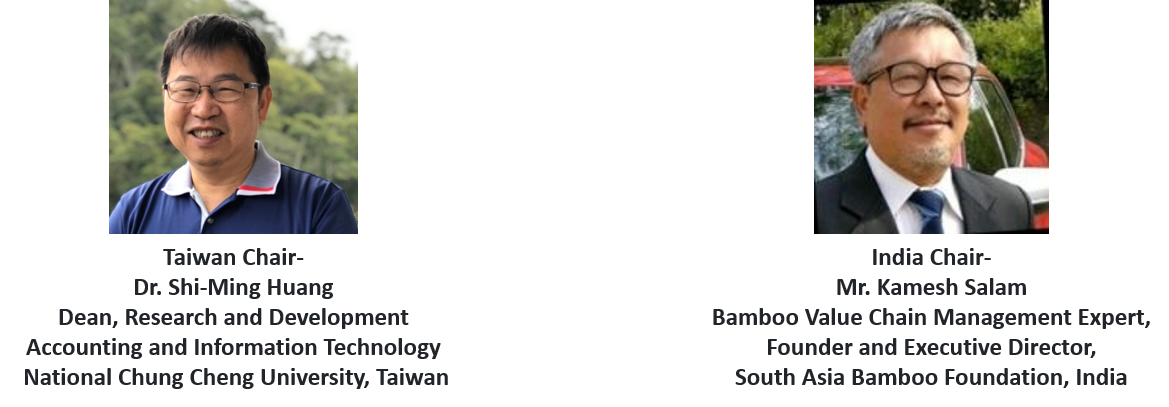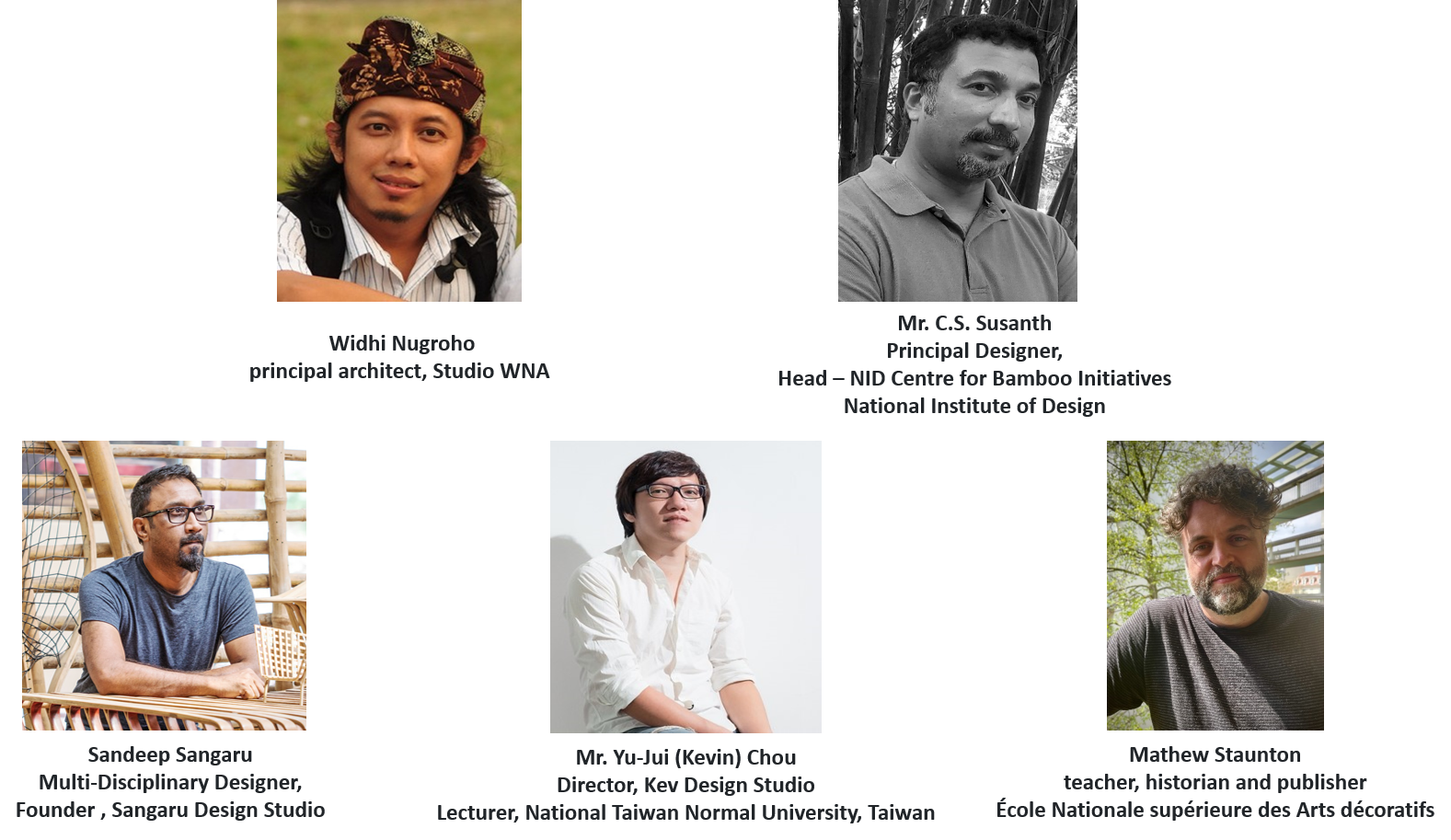2021 Taiwan-India/Global Bamboo Tech Form - Series 2

2021 TAIWAN-INDIA/GLOBAL BAMBOO TECH FORUM - SERIES 2
WEBINAR TOPICS:BAMBOO DESIGN FOR SUSTAINABLE DEVELOPMENT
Organized By:
National Chung Cheng University, Taiwan/
South Asia Bamboo Foundation, India
Forum Date: 27 May 2021(Thu.)
10:30~12:30 IST ; 13:00~15:00 CST

Objectives
In the era of green economy, the application of bamboo is becoming more and more important. The transformation of traditional industries, the nurturing of new talents, as well as the development of international markets have become new challenges for industry, government, and academia. National Chung Cheng University's USR Bamboo Program has partnered with the South Asia Bamboo Foundation in India to develop innovative research in the bamboo industry and bamboo charcoal, with the United Nations Sustainable Development Goals (SDGs) as the main focus of the collaboration. Since 2020, under the guidance and assistance of Taiwan's Ministry of Education and Ministry of Science and Technology, the two organizations have jointly organized a series of seminars and forums on bamboo technology. This year, it is expected to bring the most advanced technology vision to the world and expand the international bamboo industry community.
In the past, bamboo was used extensively in our lives, from everyday containers and furniture to residential buildings, and can be found in almost everything. In recent years, as the global environment and climate change, green and sustainable issues have become more important, and the use of bamboo is gradually being valued again by the public, making it a globally recognized green resource with high potential. In this year's second Taiwan-India Bamboo Technology Forum, National Chung Cheng University and its Indian partner South Asia Bamboo Foundation (SABF), together with National Chiayi University and the National Institute of Design (NID), Ahmedabad, India, co-hosted this forum to share how to recycle natural materials such as bamboo, and to give the bamboo industry the opportunity to flourish again through design, doing so in a sustainable manner.
HOST

Opening Ceremony V.I.P

Special Guest

Keynote Speakers


|
CCU USR Bamboo and Bamboo Charcoal Innovation Mr. Kevin Wu |
South Asia Bamboo Foundation E-mail:southasiabamboo@gmail.com Whatsapp no: +91 91 99541 70000 Center for Bamboo Initiatives (NID) E-mail:cssusanth@nid.edu/dhiraj_g@nid.edu |


